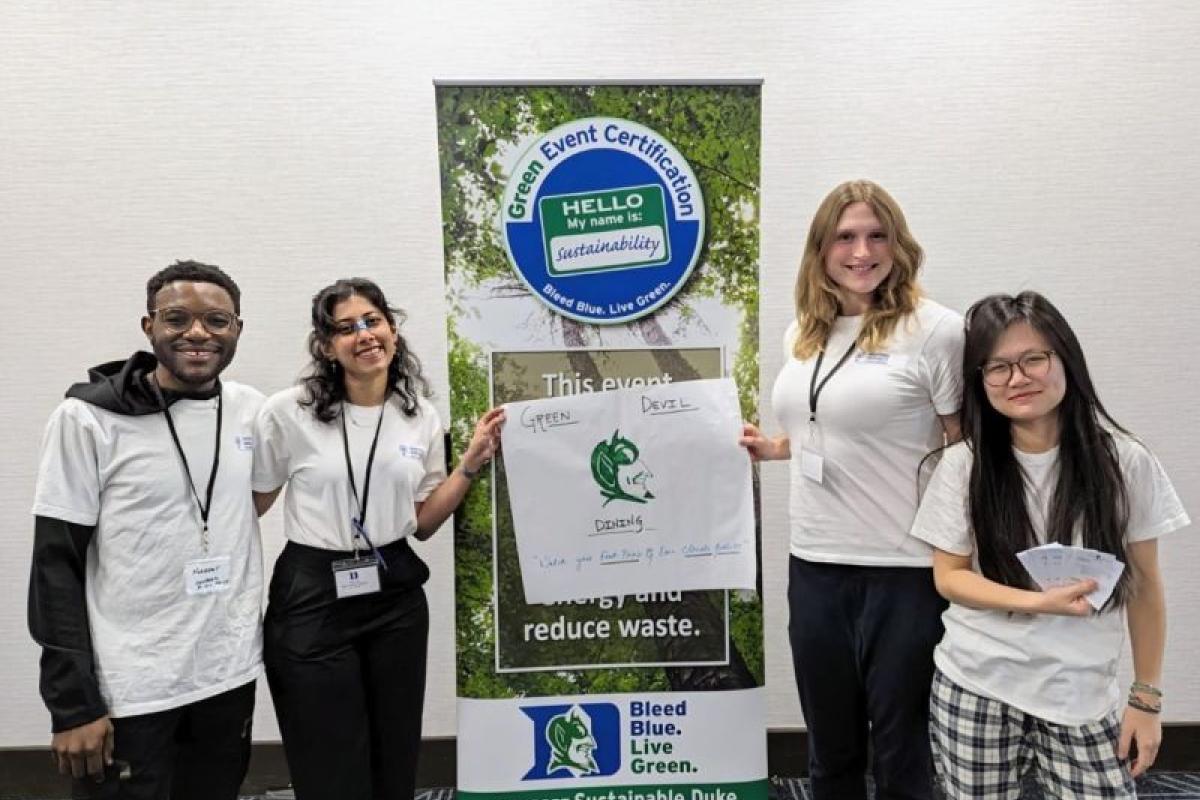The Masters Impact Challenge: Fostering a Sustainability-Conscious Community at Duke
By Antonella Di Ciano MIDP'25
The inaugural Duke Masters Impact Challenge (MIC) has set a new standard for interdisciplinary collaboration and sustainable innovation. Held Jan. 12-14, the MIC is a pioneering problem-solving retreat sponsored by the Office of the President in partnership with the Office of Sustainable Duke, Student Affairs (Graduate and Professional Student Services) and the Office of Interdisciplinary Studies.
The challenge brought together graduate students from various schools within Duke to instill a culture of sustainability and climate consciousness across the student body. During the event, 40 students, divided into nine teams, engaged in capacity-building workshops and applied their diverse skill sets to tackle pressing environmental issues. Teams were asked to address how to change aspects of student behavior to benefit the climate and promote sustainability at Duke.
Master of International Development Policy (MIDP) fellows Norbert Foy MIDP'25 and Fiona Ouma MIDP'24 represented the Sanford School of Public Policy as a member of the winning team and a judge, respectively.
"In our discovery phase, we found 92% of Duke students are unaware of the environmental impact of the daily food consumed,” said Foy, a first year MIDP student from Cameroon. “Sixty-eight percent of students surveyed said they would consider more climate-friendly food choices if they were aware of the environmental impact of their choices."
To address students’ low awareness of how their food choices can affect the environment and to encourage responsible food choice behavior, Foy’s team proposed creating a student task force to collaborate with Duke Dining Services to calculate and display the carbon "FOODPRINT" of meals served on campus. The team's initiative, “Duke Carbon Food-Print,” aims to increase awareness and tangibly reward students with "Climate Points" for selecting climate-friendly meal options that are redeemable at various campus stores.
“I thoroughly appreciated how participants collaboratively identified well-defined, tractable problems related to climate and sustainability and devised innovative solutions to address these challenges,” Ouma shared. “As a judge, we prioritized clarity in problem identification, definition and feasibility in implementing proposed solutions backed by measurable impact. We also sought innovative solutions that demonstrated a commitment to addressing climate challenges and showed the long-term scalability of the idea within Duke.”
Foy’s team included Vaishnavi Nambiar, a Master of Engineering Management student from India; Leah Li, a Master of Environmental Management student and a Chinese citizen; and Christina (Tina) Hillman, an American in the Physician Assistant program.
Highlighting the value of interdisciplinary interaction, Foy fondly recalled, "Besides the opportunity to work on an important issue like sustainability, my favorite part of the event was getting to meet many brilliant people from different disciplines that I would not otherwise meet at Sanford, where I spend most of my time."
